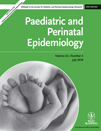Non-stress-related factors associated with maternal corticotrophin-releasing hormone (CRH) concentration
Summary
Kramer MS, Lydon J, Séguin L, Goulet L, Kahn SR, McNamara H, Genest J, Sharma S, Meaney MJ, Libman M, Dahhou M, Platt RW. Non-stress-related factors associated with maternal corticotrophin-releasing hormone (CRH) concentration. Paediatric and Perinatal Epidemiology 2010.
During pregnancy, most maternal corticotrophin-releasing hormone (CRH) is secreted by the placenta, not the hypothalamus. Second trimester maternal CRH concentration is robustly associated with the subsequent risk of preterm birth, and it is often assumed that physiological and/or psychological stress stimulates placental CRH release. Evidence supporting the latter assumption is weak, however, and other factors affecting maternal CRH have received little attention from investigators. We carried out a case–control study nested within a large, multicentre prospective cohort of pregnant women to examine potential ‘upstream’ factors associated with maternal CRH concentration measured at 24–26 weeks of gestation. The predictors studied included maternal age, parity, birthplace (as a proxy for ethnic origin), pre-pregnancy body mass index, height, smoking, bacterial vaginosis and vaginal fetal fibronectin (FFN) concentration.
Women with high (above the median) plasma CRH concentration were significantly less likely to have been born in Sub-Saharan Africa or the Caribbean, less likely to be overweight or obese, and more likely to be smokers. Associations with maternal birthplace and BMI persisted in logistic regression analyses controlling for potential confounding variables and when restricted to term controls. A strong (but imprecise and statistically non-significant) association was also observed with high vaginal FFN concentration. Further studies are indicated both in animal models and human populations to better understand the biochemical and physiological pathways to CRH secretion and their aetiological role, if any, in preterm birth.




